It is rather unfortunate to note that in spite of all the advancements we have achieved, our world still remains an unsafe place. Darwin’s theory about survival of the fittest notwithstanding, each of us remembers terror incidents including 9/11, 7/7, and 26/11. Those were terrorist attacks that stunned the world into silence. But, as we observe the first anniversary of Army Public School (APS) attack, we recall an incident (dated December 16, 2014) that was extraordinary in nature.
It was definitely not the first time that innocent children had died in the wake of increasing crime – readers might have been forced to bring to mind Malala Yousafzai’s case, an activist and the youngest Nobel laureate, who was but a teenager when a Taliban gunman attempted to assassinate her – but the fact that those terrorists had specifically targeted school children makes it a unique instance.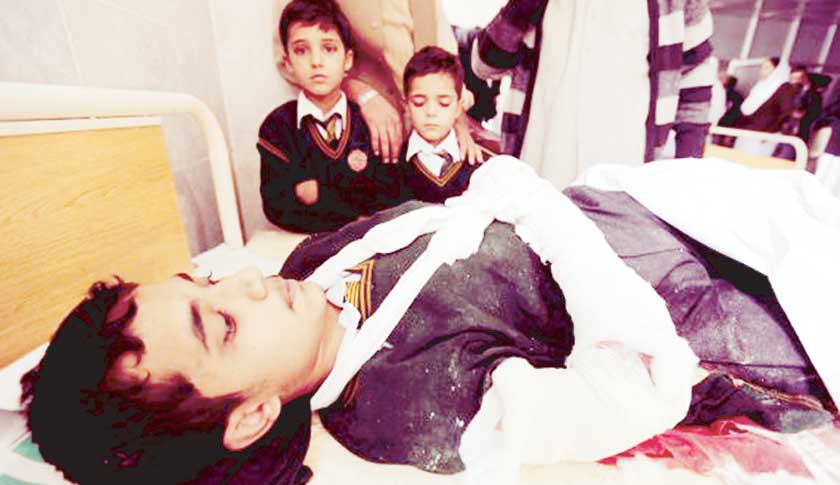
The incident has taken aback all and sundry and it was in its aftermath that Chief of the Army Staff , General Raheel Sharif, gave his nod for the establishment of military courts for those involved in such terrorist acts and heinous crimes. The army chief immediately suspended all his engagements and reached the site soon to assess the situation.
Despite terrorism being a global issue, not knowing religious or country boundaries, the following article evaluates the different factors behind the APS attack, the impact that it had, and the measures our government has been taking since then to curb and defeat it.
Why it happened
The first and foremost question to bug us: why did they do something so appalling? Was it a particular mindset, an insufficient socio-economic background, or a religious narrative that triggered it?
But how many times have we heard about it that terrorists are susceptible to the cause if they are poor and unable to support their family. Is it only because of the promise of a ‘jihad’ and thereby the heaven that they can be coerced into giving up their sense of morality and humanity? Are they deranged? Are these the only issues that provoke terrorist activity in any region? May be. However, there’s the thing about individuals belonging to w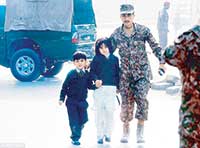 ell-educated and higher class of the society (e.g. the Safoora Goth carnage).
ell-educated and higher class of the society (e.g. the Safoora Goth carnage).
To be attributed thus, the person would lack compassion and empathy, abilities that are natural to humans. Understandably, it helps them treat others as mere objects, as the ‘other’, separate individual that they cannot connect with. Others still, craving to belong and be identified with the ‘popular’ ideology, tend to fall prey to leaders of extremist groups who promote beliefs and a proper structure. Add to it then that the techniques used by them encourage a meaningful life, both in terms of material and religious aspects, and the new life appears intoxicating in a second.
According to Muhammad Umar Khorasani, spokesman of the banned organization Tehreek-e-Taliban Pakistan (TTP), which had immediately claimed responsibility for it, “We selected the army’s school for the attack because the government is targeting our families and females.” Justifying the atrocity as reaction to Pakistan’s military actions, Zarb-e-Azb, he added that it was because “we want them to feel the pain”.
The government had been quick to dismiss this claim, stating “Pakistan Army has never targeted children and women... [and that they] don’t target non-combatants.” So, targeting schools for one would have been a good option since these are state institutions, a strike therefore would be a work against the government they want to dismantle. Perhaps, the attack was because APS allowed girls to obtain education, that too, an education they considered was ‘un-Islamic’. Furthermore, the more shocking and large-scale scenario it would have been, the more support they would be able to garner and stress their importance. Deliberately targeting civilian non-fighters and educational institutions shows that the terrorists were after a ‘soft target’, i.e. a somewhat unguarded site where a large number of students and teachers gather, offering the monsters a chance to make mass casualties possible. 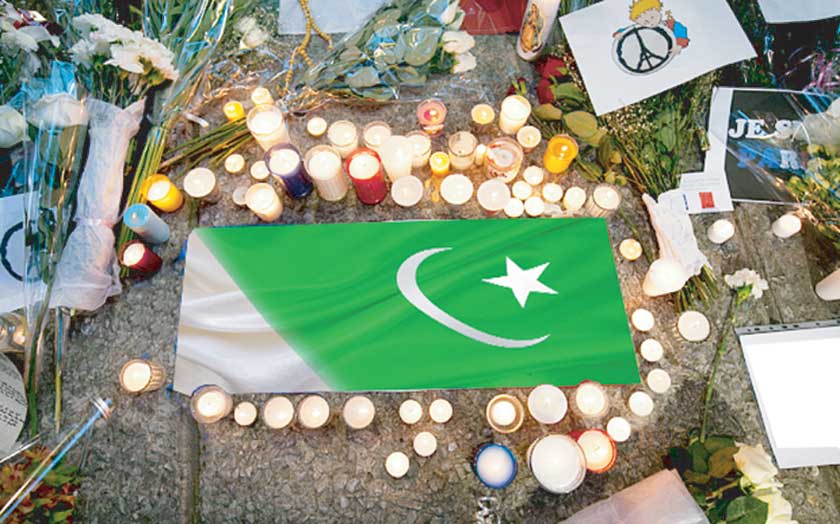
To sum up, their demonstration proved ‘government’s incompetence’ as well as evoked strong emotional response and got the desired media coverage to be respected and/or feared; to some sects it proved, too, that violence was internalised and part of the terrorist’s personality that grew up in a society which justified violence. But is this the issue? Or is labelling them and terrorism as crazy actually misleading? How do they recruit them if not with sane, compelling messages?
According to a renowned psychiatrist, such an individual can be “a person who may be single or a member of a group who scares others by using or advocating terrorism.”
According to him, one can attribute to them use of violence and threats to intimidate or coerce others, especially for political purpose; to induce a state of fear and submission produced by terrorism.
While answering queries for Us, he reiterated the point that the attack was “pure vengeance” indeed, to show that the houses and institutions of the army personnel can be attacked too.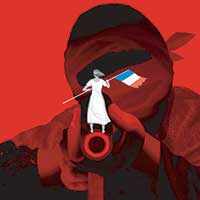
The effect it had
While there have been various forms of terrorist attacks in the past, including hostage takings, bombings, arson, and chemical attacks, each having occurred frequently, the APS attack stands out amongst the rest. Unfortunately, most of the reports had centred around the impact on the immediate effect (e.g. the number of people injured or killed and material costs) but little has been said about the (cumulative) long-term effects such instances have, for example, on pupil attendance and teacher effectiveness.
According to one study, the damage goes beyond physical injuries, property damage, or even death; one cannot overlook the adverse psychological effects these traumatic experiences leave on the witnesses and with respect to APS, you cannot forget there were young children who saw the whole episode first-hand, who heard it, read about it, or watched it unfold across the country.
There is no doubt that the families of the students and staff killed, the survivors and their families, and the society in general were forced into a state of acute stress. Given that they had no control over the incident as it happened, we can only imagine how helpless or uncertain they must have felt at the moment. Following it, who can say they do not dread every day still? That they do not have nightmares or exhibit reclusive behaviour even as they sit in the company of their loved ones? That they can no longer respect humanity, bound yet afraid to think like their perpetrators?
No one, after all, contemplates being in such a position; they are just thrown into it: where some were literally pulled into the unthinkable act of horror, several others witnessed them struggling to live normally since have spent countless hours of sheer, debilitating madness. Can we say it did not rip the heart right out of those families? Can we say the generations who survived were not robbed of their innocence then and there? A disfigurement in the physical appearance can be a painful reminder of the tragic event, but is not the only mark victims of terrorism have.
We say time heals everything but ask those who have been scarred and you would realise how a majority of them carry no probability of ever returning back to their previous lives. And damned as they are, their suffering begs for your attention and patience, that is if you can spare any without pity.
It was truly a surprise to see a majority of them turn up, resilient and defiant despite everything they have encountered. The scene was nothing short of the moving video that accompanied the musical tribute released by Inter-Services Public Relations (ISPR) or the message it conveyed. However, there were still mixed emotions. For one, there was the loss of principal and other teachers from the attack; then, across the country teachers were forced to give up their jobs when schools reopened due to perceived risks. They were reportedly not in the right disposition for teaching. The higher up the level that these de-motivated teachers were, the more students suffered in terms of quality of teacgers.
Other than that, some students abandoned their studies, either by themselves or asked to by their parents, for the same reason. It was not that they didn’t want to return to school or partake in any activity for that matter. They were distracted; some still are. Lack of concentration and living in denial on the up-front are not a long way away from hiding the fear set deep within. Not being encouraged to talk about what happened or listening to them claim that they have forgotten the event are both extreme ends of the same continuum: facilitating suppression of memories.
Haunted thus, the attack could have succeeded in crushing their spirits, and breaking their trust in school’s role as a safe institution imparting valuable education. Treatment alone is not what they need, though. True, they had to heal emotionally; however, it would have taken a higher force to unify the nation and to make the survivors return without any apprehensions.
Also, another unfortunate aspect was that resources that were meant for development of education were redirected and invested in management tasks (renovation and enhancing security system of school) following it.
Now, logic suggests that, left alone, these would have nicely elaborated into making the whole of education system and, by extent, the State fragile. In a few months’ time only, the attack could have managed to restrict literacy rate and, therefore, social development. The fact that none of this happened implies an appropriate intervention.
Rehabilitation - not an easy process
“There is no class 9 in APS anymore...”
Words that reverberated in our hollow minds, numbing us, terrifying us. Recovery seems easy when these happenings are not influencing your day-to-day lives. But seen from a closer angle, having lived through it and seen your classmates and co-workers, students, teachers, and principal being brutally killed take a toll on individual well-being and the education system itself. From greater costs required to rehabilitate or reconstruct the facilities – not to say upgrade them – to disruption and dropping out of staff and learners due to traumatisation and de-motivation.
The fact that the survivors and families of the victims hastened to express their solidarity with the French is proof of their valour. They had relived the pain of an attack that mirrored their own ordeal. Except that the extremist attack happened in a city, which was believed to be peaceful, highly developed and secure.
All nations need proper strategies to recover from a tragic hit. But some of these measures are a tad bit more important in that they help to address the direct effects, that repairing of destroyed building or souls is carried out in a timely fashion lest they become a long term issue. They are important as well in that they will prevent similar attacks from recurring. As curious readers, as concerned parents, as patriotic teachers, we as a nation should be aware of what measures the authorities have taken so far to provide a safe environment for all of us. Has it been an eye-opener and brought forth a new system wherein there can be greater monitoring and reporting?
Terming the incident horrifying, commissioner Karachi, Shoaib Ahmad Siddiqui, said the government has taken stringent measures to avoid occurrence of such type of barbaric incidents particularly in education institutions of the city.
“The Sindh government hierarchy (especially) has liaised with different stakeholders in this regard and sensitised them to combat with such situations, God forbid, in future,” Shoaib Siddiqui told Us magazine when approached for his comments.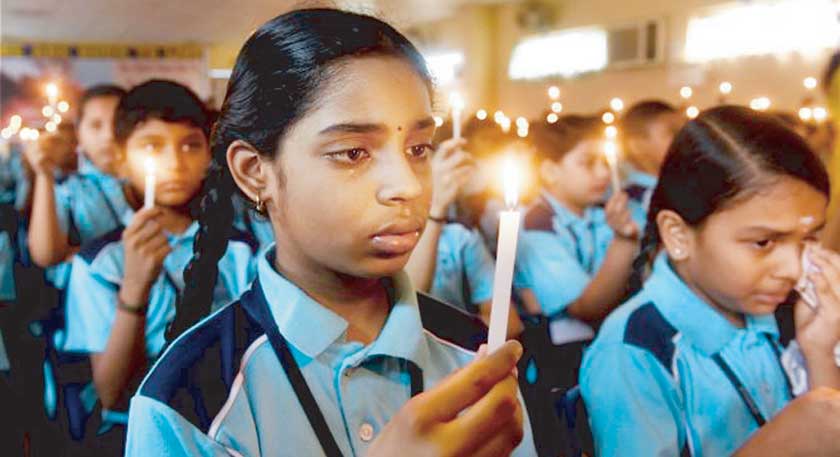
“A large number of educational institutions in Karachi alone have installed close-circuit televisions (CCTVs), raised their boundary walls in addition to beefing up security guards at the entry and exit points to monitor activities during school hours,” he added.
Commending at the swift and efficient response on their part, the commissioner said teams have been formed to check implementation of the directives and added, “This process is going to continue to ensure lives of our children are secure.”
As final thoughts on the first anniversary of the bloody rampage, let us show the fanatics and the rebels that we stand united! Everything that the government bodies have done - from instructing individual citizens, increasing security checks, providing counselling, and coaching lady teachers to use weapons and be armed at all times - shows that we remain determined and strong.
#NeverForgetAPS
Long live Pakistan!
Syed Khursheed Shah, Leader of Opposition in the National Assembly, has urged the prime minister along with chief ministers of Khyber Pakhtunkhwa, Punjab, Sindh, and Baluchistan that annual events be organised and libraries and museums be constructed across Pakistan in both federal and provincial capitals in memory of the 150 people martyred on December 16 in Peshawar.
4 convicted terrorists – Mujeeb ur Rehman, Maulvi Abdus Salam, Sabeel, and Hazrat Ali – members of Toheedwal Jihad Group (TWJ) and involved in the attack on the army-run school were hanged in the first week of December in Kohat prison. It was the first time civilians had been sentenced by military courts.